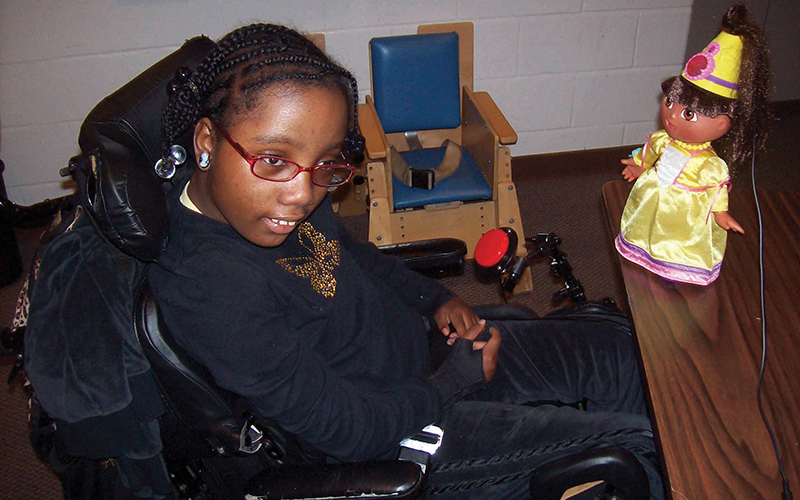Adapted toys bring joy to children with disabilities

Interactive toys like Hokey Pokey Elmo are among the most popular items on children's Christmas lists.
Kids of all ages light up when they see Elmo dance and are eager to squeeze his hand for more. But what happens when a child isn't physically able to press the button?
That's where RePlay for Kids comes in. This innovative agency adapts toys for children with developmental disabilities. Using volunteers and donated toys, the organization is able to repair and adapt nearly 700 items each year. The toys are then distributed to agencies throughout Northeast Ohio that use them during physical therapy sessions.
To adapt these toys, volunteers – including engineering students from the University of Akron – adjust the toys' circuitry systems so they can be activated using an assistive technology device called a switch. Switches may be controlled with a person's breath, head movements or even blinking.
They are often tricky for children to learn, which is why practicing on a toy is so useful. By using the switch to activate a toy, the child builds valuable skills he can use in his daily life.
"If a child can make Elmo giggle by using their switch, they can also use that switch to say, 'I need a drink of water,' or to turn on the lights at home," explained Natalie Wardega, assistant director. "We make it fun and more motivating."
The services provided by RePlay for Kids are critical for local agencies and families. An off-the-shelf adapted toy can run up to $200 – a price many parents are unable to pay. As a result, agencies often see families whose children's only exposure to adapted toys and devices is during therapy.
Thankfully, a Millennium Fund grant is making it possible for those families to have adapted toys of their own. The $1,931 grant will help the agency produce free toys for low-income families to use at home.
"We don't want kids to lose those skills when they go home," Wardega said. "Plus, if there are other children in the house, they can play with the toys together. It helps with inclusion."
Some parents, like Lorie McMullen, attend the workshops to learn how to adapt their own toys. Lorie's 3-year-old daughter, Rakaya, was born with cerebral palsy.
"(The toys) teach Rakaya cause and effect," as well as independence, Lorie said. "She wants to play with them by herself, and I never thought I'd see that day."
The gratitude from families and agencies that receive these toys is priceless. In one memorable instance, an agency told Wardega, "The light-up musical toy you adapted was the only toy that motivated one of our autistic children to do his therapy."
It's those kinds of stories that inspire RePlay for Kids to keep increasing the number of toys they produce for local agencies. "Every time I deliver our toys, they are so excited to see me," Wardega said. "It's rewarding to see how important our services are."
